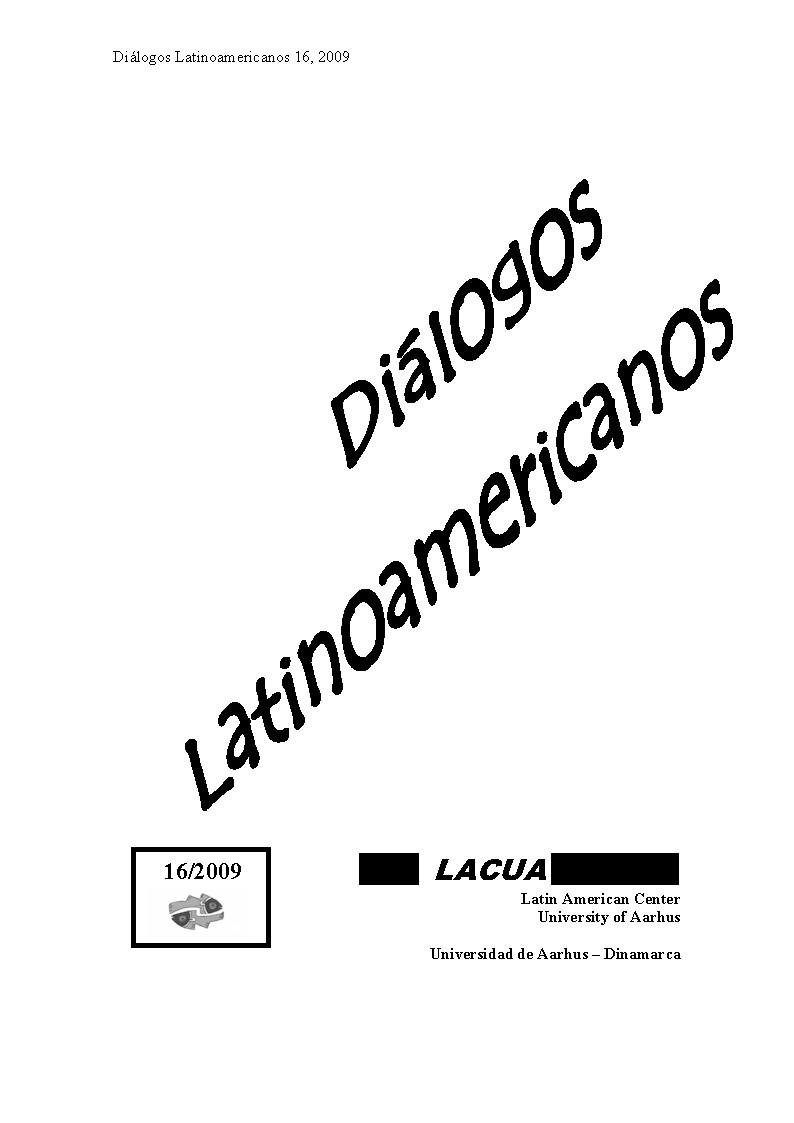Chicano Identity and Discourses of Supplementarity on Mexican Cinema
From ‘The Man Without a Fatherland’ (Contreras Torres, 1922) to ‘Under the Same Moon’ (Riggen, 2008)
DOI:
https://doi.org/10.7146/dl.v10i16.113577Keywords:
Chicanos, representations, discourse, cinema, supplementAbstract
A radical change took place in Mexican narratives of belonging during
the 1990s, when NAFTA was first negotiated. Narratives of migration
drastically changed the status of Mexican migrants to the US,
formerly derided as ‘pochos’, presenting them as model citizens
instead. Following Derrida, I argue the role of the migrant became that
of a supplement, which is, discursively, at the same time external to
and part of a given unit, standing for and allowing deeper
transformations to take place in the whole discourse of bilateral
relations and national identity more generally. I use Derrida’s concept
of the supplement to discuss changing representations of Chicanos in
Mexican cinema, and to assess the extent that they have succeeded in
reframing the discourse on national identity, with a focus on gender.
References
Appadurai, Arjun. "Sovereignty without Territoriality: Notes for a Postnational
Geography." In The Anthropology of Space and Place, edited by Setha M Low
and Denise Lawrence Zúñiga, 337-349. Oxford: Blackwell, 2003.
Aviña, Rafael. Una Mirada Insólita: Temas y Géneros del Cine Mexicano. Mexico
City: Océano, 2004.
Cohan, Steven, and Ina Rae Hark. The Road Movie Book. London: Routledge, 1997.
Coll, Elizabeth. "El Día sin Mexicanos También se Sufre en Nueva York." La Jornada, July 4, 2004.
Corner, John. "Why Study Media Form?" In The Media: an Introduction, edited by Adam Briggs and Paul Cobley, 294-395. Longman, 2002.
De La Garza, Armida. "Mockumentary as Postnationalism: 'A Day without a Mexican' by Sergio Arau." In Visual Synergies: Documentary and Filmmaking in Latin America, by Miriam Haddu and Joanna Page, 175-189. London: Palgrave, 2009.
Derrida, Jacques. Limited Inc. Illinois: Evanston, 1988.
—. Of Grammatology. Baltimore: Johns Hopkins University Press, 1976.
Dissanayake, Wimal. "Introduction." In Melodrama and Asian Cinema, edited by Wimal Dissanayake, 1-8. Cambridge: Cambridge University Press, 1993.
Doane, Mary Ann. "The Close-up: Scale and Detail in the Cinema." Differences: A Journal of Feminist Cultural Studies (Duke University Press) 14, no. 3 (September 2003): 89-112.
Domínguez, Jorge I, and Rafael Fernández de Castro. The United States and Mexico: Between Partnership and Conflict. London: Routledge, 2001.
Foucault, Michel. The Foucault Reader. Edited by Paul Rabinow. London: Penguin, 1984.
García-Canclini, Néstor. Consumers and Citizens: Globalization and Multicultural Conflicts. Minnesota: University of Minnesota Press, 2001.
Harvey, David. The Condition of Postmodernity. Oxford: Blackwell, 1991.
Hershfield, Joanne. "La Mitad de la Pantalla: la Mujer en el Cine Mexicano de la Epoca de Oro." In El Cine Mexicano a través de la Crítica, edited by Gustavo García and David R Maciel, 127-151. Mexico City: UNAM-IMCINE-Universidad de Ciudad Juárez, 2001.
Iglesias Prieto, Norma. "Reconstructing the Border: Mexican Border Cinema and its Relationship to its Audience." In Mexico's Cinema: A Century of Films and Filmmakers, by Joanne Hershfield and David R Maciel, 233-248. Scholarly Resources, 1999.
Iglesias Prieto, Norma. "Retratos Cinematogáficos de la Frontera." In Por las Fronteras del Norte: Una Aproximación Cultural a la Frontera México-USA, by José Manuel Valenzuela Arce, 328-363. Mexico City: Fondo de Cultura Económica, 2003.
Jones, Carla, and Ann Marie Leshkowich. "The Globalization of Asian Dress: Re-orienting Fashion or Re-orientalising Asia?" In Re-Orienting Fashion: the Globalisation of Asian Dress, edited by Sandra Niessen, Ann Marie Leshkowich and Carla Jones, 1-48. Oxford: Berg, 2003.
Laderman, David. Driving Visions: Exploring the Road Movie. Austin, Texas: Austin University Press, 2002.
Maciel, David. "Pochos and Other Extremes in Mexican Cinema, or El Cine Mexicano se va de Bracero, 1922-1963." In Chicanos and Film: Representation
and Resistance, by Chon Noriega, 94-113. Minneapolis: University of Minnesota Press, 1992.
Mazierska, Ewa, and Laura Rascaroli. Crossing New Europe: Postmodern Travel and the European Road Movie. London: Wallflower, 2006.
Minna Stern, Alexandra. "From Mestizophilia to Biotypology: Racialization and Science in Mexico, 1920-1960." In Race and Nation in Modern Latin America, by Appelbaum, 187-210. Chapel Hill: University of North Carolina, 2003.
Paz, Octavio. The Labyrinth of Solitude: Life and Thought in Mexico. London: Allen, 1967.
Smith, Anthony D. National Identity. London: Penguin, 1991.
The Antiquity of Nations. Cambridge: Polity, 2004.
Tenenbaum, Barbara. "Why Tita Didn't Marry the Doctor, —or Mexican History in Like Water for Chocolate." In Based on a True Story: Latin American History in the Movies, edited by Donald Fithian Stevens, 159-172. Wilmington: Scholarly Resource Books, 1997.
Weintraub, Sidney. A Marriage of Convenience: Relations between Mexico and the United States. New Yoek: Oxford University Press, 1990.
Wood, Jason. The Faber Book of Mexican Cinema. London: Faber and Faber, 2006
Downloads
Published
How to Cite
Issue
Section
License
Counting from volume 31 (2022), articles published in Diálogos Latinoamericanos are licensed under CC-BY 4.0. Read more about the license terms here https://creativecommons.org/licenses/by/4.0/.
No Creative Commons license applied on volumes 1-30. All rights reserved by the authors. Readers may download, read, and link to the articles, but they cannot republish the articles.
With the publication of volume 31 (2022), authors retain the full copyright to their articles and give Diálogos Latinoamericanos the right to the first publication. Authors also retain copyright to earlier versions of manuscripts, such as the submitted (pre-print) and the accepted manuscript (post-print).
Copyright to articles published in volumes 1-30 is held by the authors.





